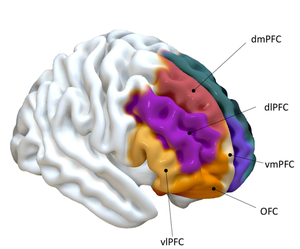Study discovers brain region linked to 'prosocial' behaviour
By IANS | Published: May 27, 2024 04:46 PM2024-05-27T16:46:27+5:302024-05-27T16:50:15+5:30
New Delhi, May 27 A new study on Monday revealed a specific brain region that is linked to ...

Study discovers brain region linked to 'prosocial' behaviour
New Delhi, May 27 A new study on Monday revealed a specific brain region that is linked to our willingness to help others.
The study, made by researchers at the University of Birmingham and the University of Oxford, shows for the first time how a region called the ventromedial prefrontal cortex (vmPFC) has a critical role in helping, or 'prosocial' behaviours.
vmPFC is located right at the front of the brain, which is known to be important for decision-making and other executive functions.
Understanding how the brain makes "helping" decisions may “motivate people to tackle large global challenges, such as climate change, infectious disease, and international conflict. It is also essential for finding new approaches to treating disorders of social interactions," said the team in the paper, published in Nature Human Behaviour.
"Prosocial behaviours are essential for addressing global challenges. Yet helping others is often effortful and humans are averse to effort. Understanding how effortful helping decisions are processed in the brain is extremely important," said lead author Professor Patricia Lockwood.
The findings are part of a study of patients with brain damage to that region. The team recruited 25 patients who had vmPFC damage, and 15 patients with damages elsewhere in the brain, and compared them with 40 healthy people.
The participants were subjected to an experiment where they met another person anonymously. They then completed a decision-making task to measure how willing they were to exert physical effort (squeezing a grip force device) to earn rewards (bonus money) for themselves and the other person. The results showed that the vmPFC was necessary for motivation to help others, as those with vmPFC damage were found less willing to help others.
Besides understanding prosocial motivation, the study may also help develop new treatments for clinical disorders such as psychopathy, the researchers said.
Disclaimer: This post has been auto-published from an agency feed without any modifications to the text and has not been reviewed by an editor
Open in app